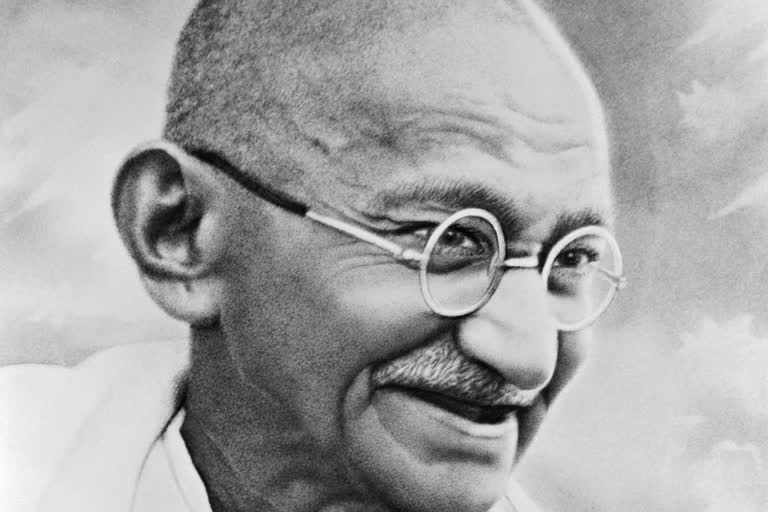Hyderabad:It is said that a politician only thinks of the next election, while a statesman thinks of the next generation. Gandhiji called himself a politician who was trying to be a saint; his thoughts, words and deeds have eternal significance for society, and indeed mankind.
He was an exceptional human being for whom there is no gulf between thought, word and deed; and it is this purity and total integrity that gave Mahatma Gandhi so much power during his life, and that attracts every generation in every society to his philosophy.
Gandhiji belongs to the category of great men – Gautama Buddha, Mahavir Jain and Jesus Christ – who elevated human consciousness, made humanity transcend the normal instincts, and helped shape our behaviour by moral force, truth and conscience.
Gandhiji's life was rooted in tradition and religion, but he transcended all faiths and taught and practised true humanism and universal brotherhood. He never hated the oppressor, but always rejected the unjust status quo and generated creative tension without leading to violent conflict. The extraordinary power of his ideas, life and teachings continues to inspire and guide successive generations.
We live in the nuclear age in which the great powers have enough thermonuclear warheads to decimate mankind several times. Gandhiji’s philosophy of nonviolence has been a powerful influence in the pacifist movement that rose after the Second World War.
In today’s world, talk of the use of nuclear weapons or invasion of another country for territorial conquest are unthinkable. As a result, despite the many challenges all over the globe, mankind is witnessing the most peaceful period in history. A year ago, a 15-year old Swedish school girl, Greta Thunberg, peacefully protested against rising levels of greenhouse gases in our atmosphere and the global warming and aroused the conscience of the whole world. Both Thumberg’s protest and her concern for the environment and quest for harmony between our species and nature are entirely Gandhian.
Gandhiji is the World’s first environmentalist who famously said there is enough on Earth for everybody’s need, but not enough for everybody’s greed. The world is now waking up to Mahatma Gandhi’s wisdom, and his prophetic words have more relevance today than ever before.
Gandhiji gave the world powerful tools to fight injustice. His nonviolence, Satyagraha and Truth Force have influenced many movements and many great men and women that changed the course of human history.
The anti-apartheid movement of Nelson Mandela and his colleagues was profoundly influenced by Gandhiji’s ideals.
Ultimately the nonviolence and moral force of Mandela and African National Congress aroused the conscience of the World Community and the apartheid government in South Africa and paved way to the end of institutionalised racism through peaceful struggle.
The Truth and Reconciliation Commission headed by Archbishop Desmond Tutu appointed by Mandela was a further successful Gandhian effort to heal the wounds of the past and allowed integration of races after decades of brutal oppression and bitter memories.
The Civil Rights Movement in the US led by Martin Luther King Jr, the peaceful movements for democracy in Burma, Philippines and many other countries, the peaceful fall of Berlin Wall and unification of Germany, the collapse of the Soviet Union and the nonviolent end to totalitarian dictatorship in eastern Europe – all have been influenced by Mahatma Gandhi’s message and methods of nonviolence, truth-force and peaceful reconciliation of conflicting interests and harmonious resolution of conflicts.
Gandhiji always fought for human dignity and equality and for mutual respect, tolerance and peaceful coexistence of various groups transcending their primordial loyalties.
India as a nation is a unique symbol of the values Mahatma Gandhi represented. As a nation, we are a work in progress and a lot remains to be done to measure up to the ideals of Mahatma Gandhi. But even our flawed democracy is a unique amalgamation of many languages, religions and cultures whose coexistence as a single nation with relative peace and harmony is a miracle.
Most scholars and observers in the first decade after Independence predicted that India would not endure as a nation, and it would soon break up into several fragments because of the extraordinary diversity.
Almost no one believed that we would be a free society capable of running a democracy with a peaceful transfer of power through popular vote.
India overcame many of those fears and dire predictions largely because Gandhiji forged all Indians into one nation. His message of tolerance, coexistence and reconciliation have become integral to our society in daily lives.
The way our extraordinary linguistic diversity was handled by the nation is a great example to the world.
